After protesters stormed into the Legislative Council on Monday, some spray-painted slogans on the walls expressing their anger over the decline of Hong Kong freedoms.
“It was you who taught me peaceful marches are useless,” read one message on the pillar right outside the legislature’s main chamber. “Abolish functional constituencies,” another read.
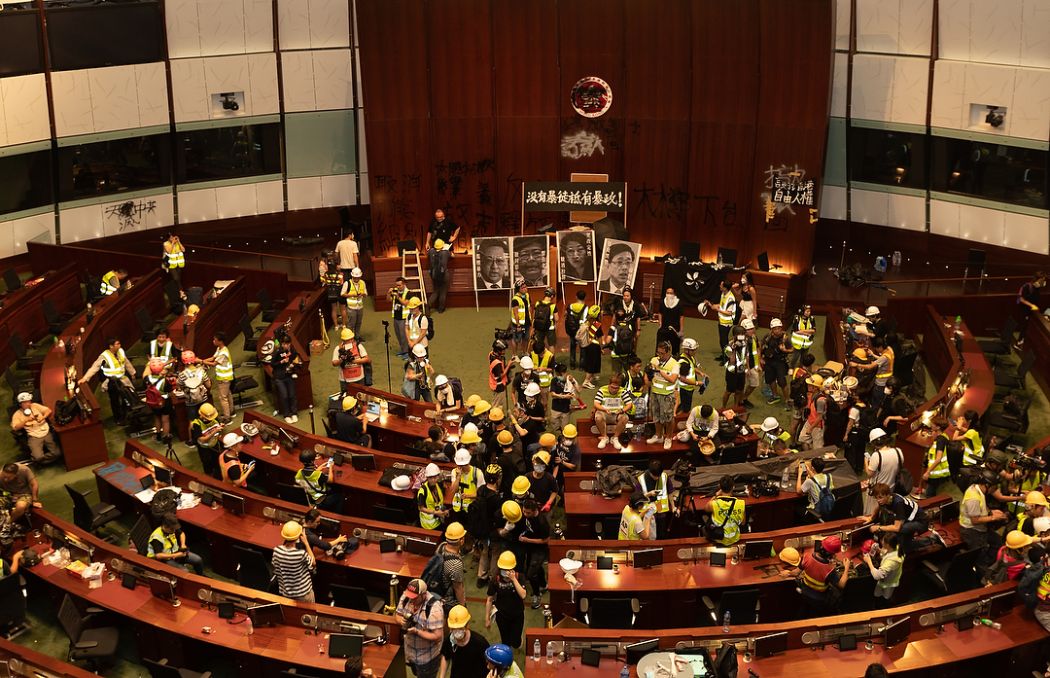
The reasons for the slogans are multifold. But they all point to a failed institution which was unable to deal with controversial issues – such as the extradition bill – in a fair and structured way.
The assembly’s election mechanism and operation system allow the government and its allies to control the legislature’s majority.
Only a little over half of the legislature is directly elected by voters through one-person-one-vote, while 30 seats belong to the functional constituencies. These lawmakers are elected by voters of different sectors such as tourism, commerce and insurance.
However, many of the functional “voters” are not people but companies, meaning that essentially only the directors and owners can vote for the seats. Most of these sectors usually elect pro-Beijing lawmakers.
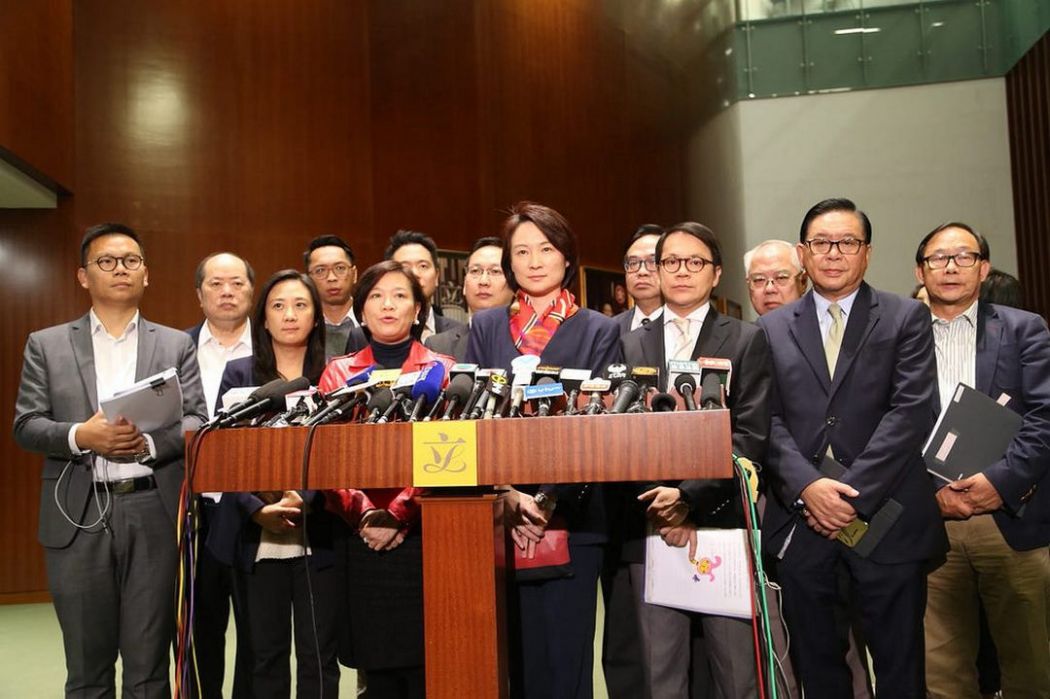
When the government proposes a bill, an amendment, or a motion in the legislature, it only requires a simple majority to pass, with a few exceptions such as political reform packages which require two-thirds. As a result, as long as the government has the support of the pro-Beijing camp, which has a simple majority, it rarely has to listen to, or compromise with, the pro-democracy camp.
For instance, the joint checkpoint arrangement of the Express Rail Link to Guangzhou was a major controversy which attracted criticism from democrats. They said the government was “ceding land” to China by giving mainland authorities effective control of a quarter of the West Kowloon terminus. Even the Hong Kong Bar Association, a body of the city’s top lawyers, questioned the proposal’s legality.
However, the end result was easy to predict. Legislative Council President Andrew Leung – a pro-Beijing camp member – exercised his discretion and limited the debate to 38 hours. Leung also kicked out of the chamber five pro-democracy lawmakers who protested during the debate. The arrangement was passed with 40 “yes” votes, 20 “no” votes and one abstention.
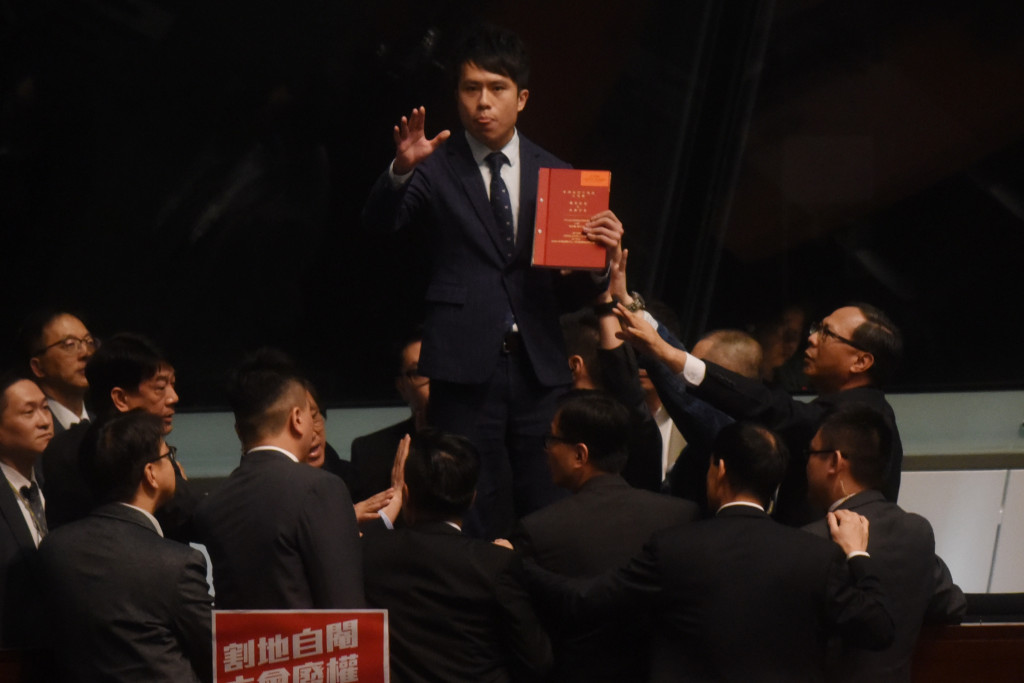
Aside from having their voices neutered inside the chamber, the democrats faced other problems.
In 2016, even before the legislative election, pro-independence activists – and other hopefuls who proposed a change of the political system – were barred from running. Yet the reasons for banning the six candidates appeared to be arbitrary.
For instance, Edward Leung of Hong Kong Indigenous signed a declaration that he would uphold the Basic Law and pledge allegiance to the Hong Kong Special Administrative Region, and publicly denounced his pro-independence thoughts. Yet he was still barred from entering the race.
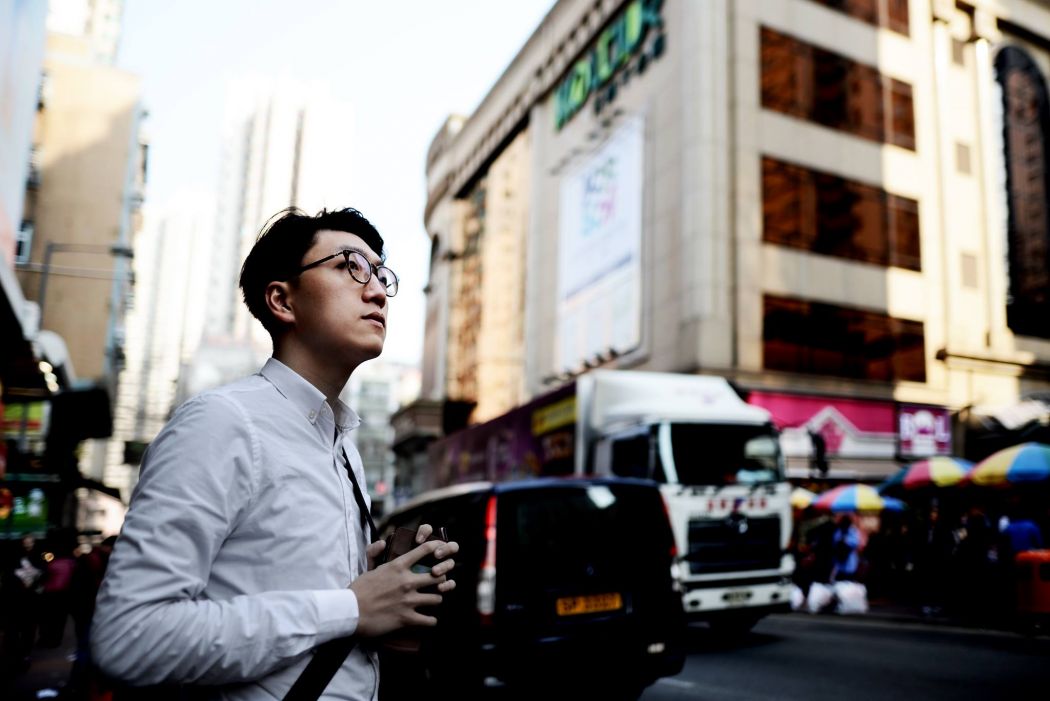
Even for democrats who were elected, the problems did not stop. Baggio Leung and Yau Wai-ching’s controversial methods of taking their oaths of office sparked the Hong Kong and Beijing governments to take action to disqualify them from their seats.
Four more pro-democracy lawmakers Nathan Law, Edward Yiu, Lau Siu-lai and “Long Hair” Leung Kwok-hung were then disqualified for similar reasons relating to protests they made during their swearing-in. Disqualifications of candidates occurred again when by-elections were held to replace their vacant seats, including Lau who was banned from attempting to take back her own seat.

In the past, democrats hung on to their majority in the geographical constituencies – 35 directly elected seats – but after losing six seats, the majority was wiped out. The pro-Beijing camp then used the opportunity to push through changes to the legislature’s rules, effectively blocking the democrats from filibustering on most occasions.
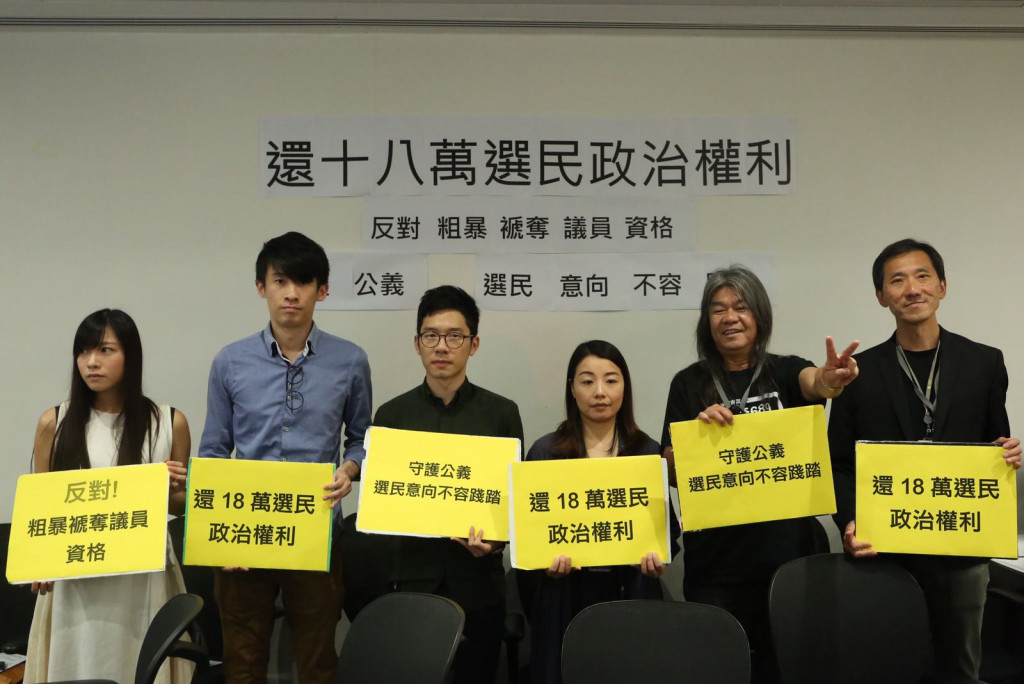
When the government proposed the controversial extradition bill in February, the government was confident that it would pass with the support of the pro-Beijing lawmakers. All obstacles had been removed from passing the law which would enable fugitive transfers to mainland China.
The democrats used a tactical move to block a bills committee formed to debate the bill from making any progress. Then, the government, in response, took an unprecedented measure to fast-track the bill, skipping the committee process.
When the legislative process was hindered, lawmakers and citizens turned to peaceful – and gradually more confrontational – protest.
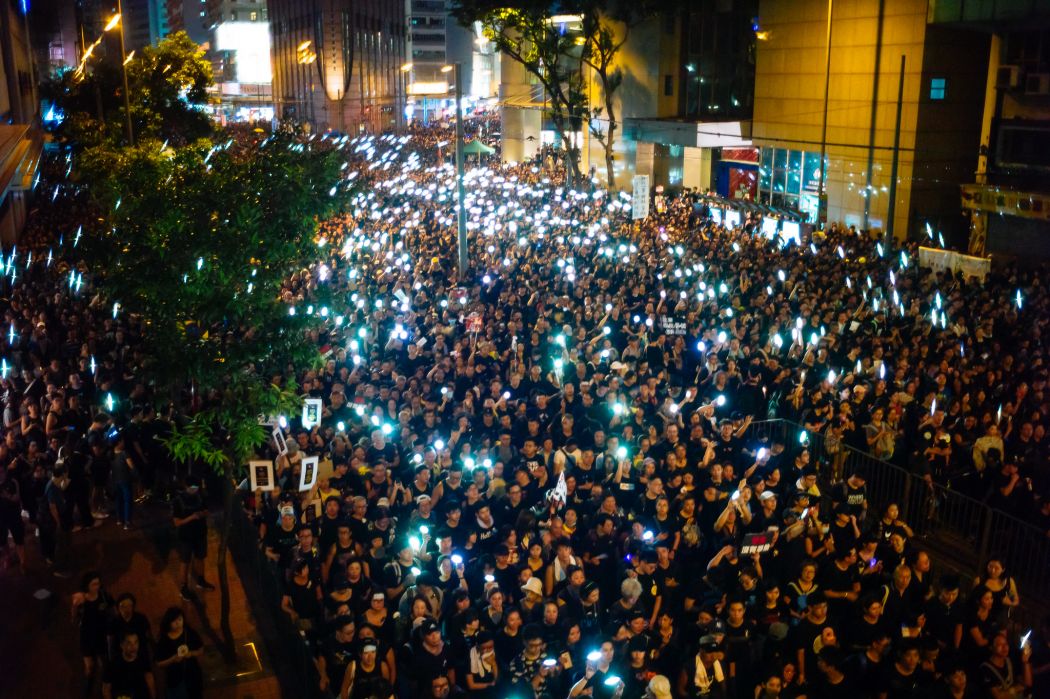
The Civil Human Rights Front (CHRF), the organiser of Hong Kong’s major marches, said 12,000 participated in a rally in late March against the extradition law, then 130,000 marched in April. But the government was not moved.
On June 9, CHRF said one million people marched. The response from the government was that the legislative process would continue. On June 12, as the legislature was scheduled to debate the bill, thousands gathered outside. A violent clash ensued, and dozens were arrested.
The government then suspended the bill on June 15, meaning that it would expire when the Legislative Council’s term ends next July. This that was not enough for protesters – they wanted the complete retraction of the bill immediately, among other demands.
On June 16, two million marched, according to CHRF, though – again – the government would not respond to their demands.
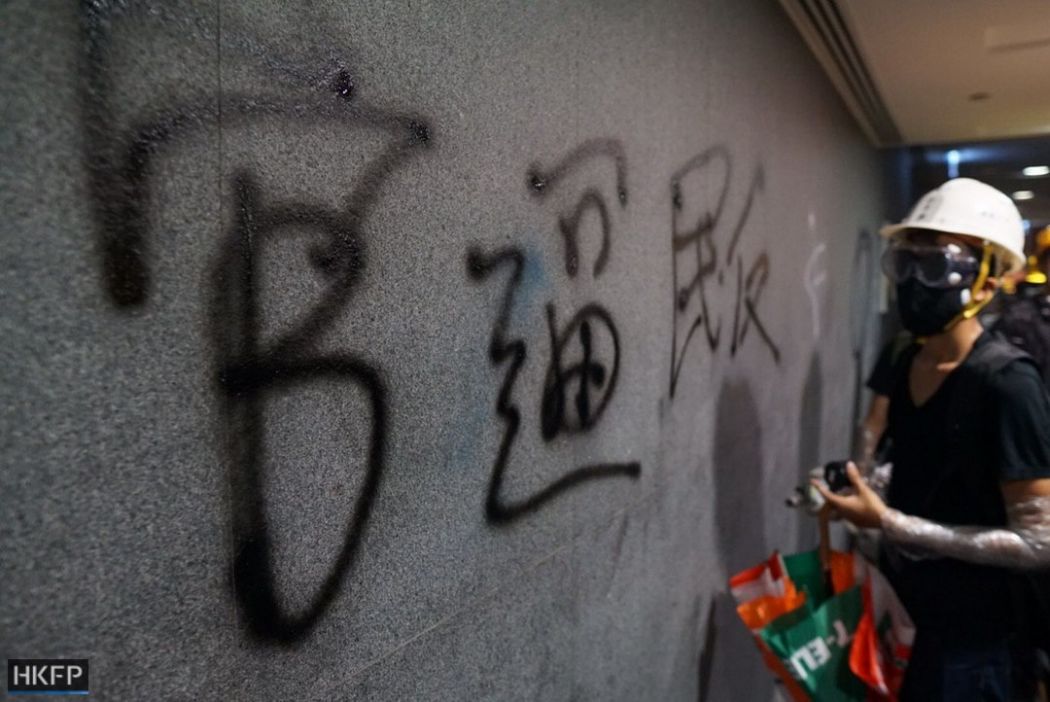
A series of other protests also took place, including the occupation of main roads in Admiralty, Police Headquarters, Revenue Tower, and a sit-in outside the Department of Justice.
These protests and the lack of response from the government may have laid the ground for more forthright actions taken by protesters later on.
“The government forced us to revolt,” read several slogans spray painted on the Legislative Council’s walls on July 1, as demonstrators tore through the corridors before briefly occupying the main chamber.
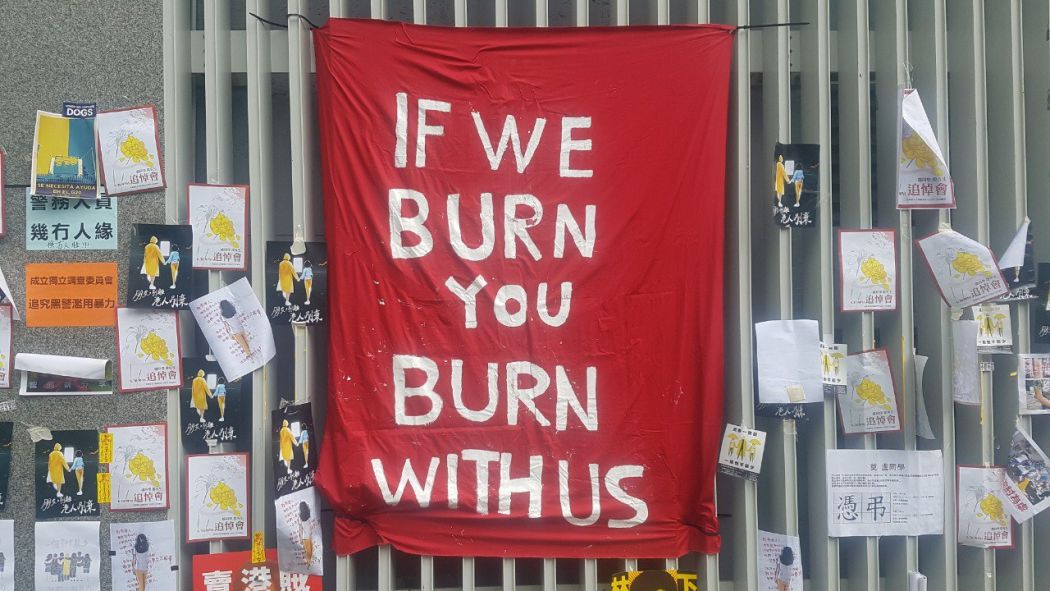
But as efforts to restore the building get underway, the question remains as to whether there will be any repairs to the legislature’s other structural problems.
